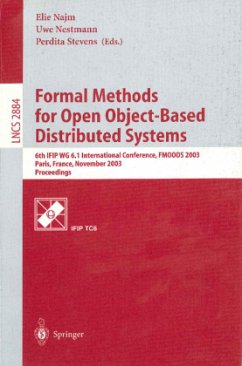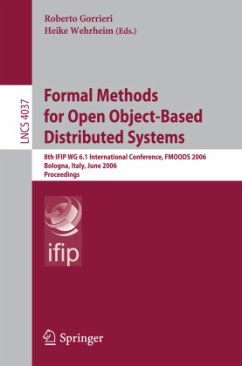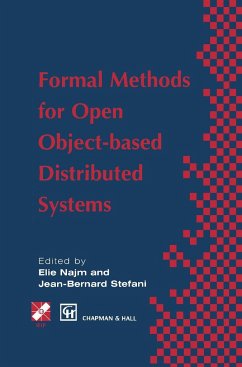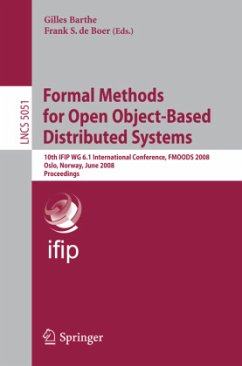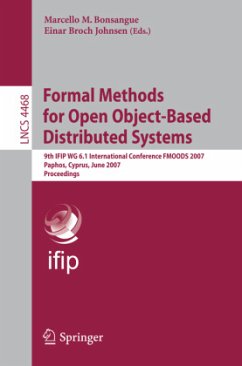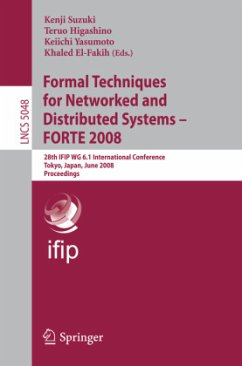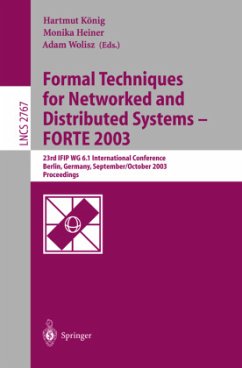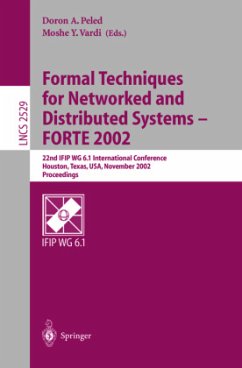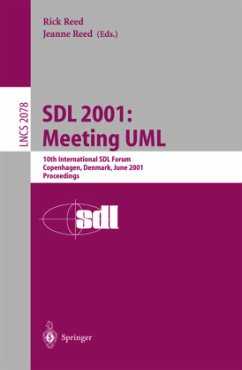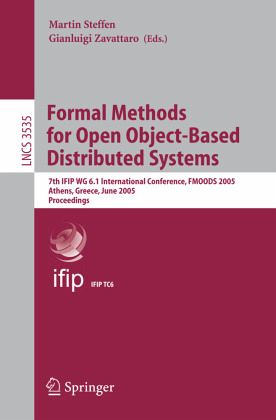
Formal Methods for Open Object-Based Distributed Systems
7th IFIP WG 6.1 International Conference, FMOODS 2005, Athens, Greece, June 15-17, 2005, Proceedings
Herausgegeben: Steffen, Martin; Zavattaro, Gianluigi

PAYBACK Punkte
20 °P sammeln!
This volume contains the proceedings of FMOODS2005, the 7th IFIPWG6. 1 International Conference on Formal Methods for Open Object-Based Distributed Systems. The conference was held in Athens, Greece on June 15 17, 2005. The eventwasthe seventhmeeting ofthis conferenceseries,whichis held roughly- eryyearandahalf,withtheearliereventsheldrespectivelyinParis,Canterbury, Florence, Stanford, Twente, and Paris. ThegoaloftheFMOODSseriesofconferencesistobringtogetherresearchers whose work encompasses three important and related ?elds: formal methods; distributed systems; object-based technology. Sucha ...
This volume contains the proceedings of FMOODS2005, the 7th IFIPWG6. 1 International Conference on Formal Methods for Open Object-Based Distributed Systems. The conference was held in Athens, Greece on June 15 17, 2005. The eventwasthe seventhmeeting ofthis conferenceseries,whichis held roughly- eryyearandahalf,withtheearliereventsheldrespectivelyinParis,Canterbury, Florence, Stanford, Twente, and Paris. ThegoaloftheFMOODSseriesofconferencesistobringtogetherresearchers whose work encompasses three important and related ?elds: formal methods; distributed systems; object-based technology. Sucha convergenceis representativeofrecentadvancesin the?eld ofdistributed systems, and provides links between several scienti?c and technological com- nities, as represented by the conferences FORTE, CONCUR, and ECOOP. The objective of FMOODS is to provide an integrated forum for the pres- tation of research in the above-mentioned ?elds, and the exchange of ideas and experiences in the topics concerned with the formal methods support for open object-based distributed systems. For the call for papers, aspects of interest - cluded, but were not limited to: formal models; formal techniques for speci?- tion, design, or analysis; veri?cation, testing, and validation; component-based design; formal aspects of service-oriented computing; semantics and type s- tems for programming, coordination, or modelling languages; behavioraltyping; multiple viewpoint modelling and consistency between di?erent models; tra- formations of models; integration of quality-of-service requirements into formal models; formal models for security; formal approachesto distributed component frameworks;andapplications andexperience,carefullydescribed. Work onthese aspects of (o?cial and de facto) standardnotation and languagesfor serviceo- ented design, e. g. web services orchestration languages, was explicitly welcome.



